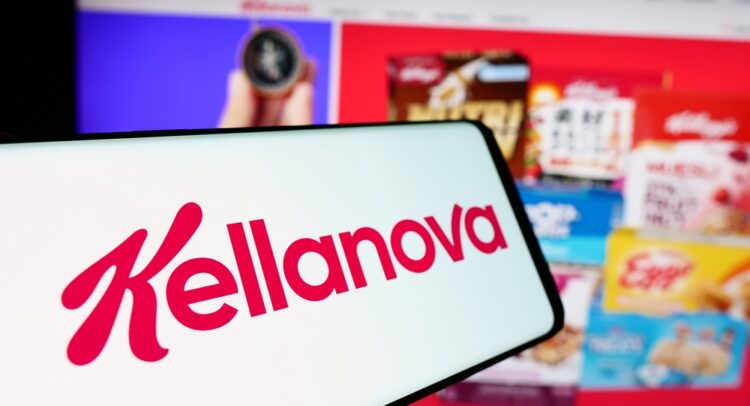Privately held candy giant Mars has agreed to acquire snacking company Kellanova (K) for $30 billion in cash. Mars is paying $83.50 per share to buy the Pringles and Cheez-It maker and assuming about $6 billion in debt. K shares are up 7% in pre-market trading, as of writing.
Confident Investing Starts Here:
- Easily unpack a company's performance with TipRanks' new KPI Data for smart investment decisions
- Receive undervalued, market resilient stocks right to your inbox with TipRanks' Smart Value Newsletter
The news about the potential Mars-Kellanova deal started making the rounds in early August. The acquisition, if approved, will be one of the largest deals this year and also one of the biggest ever in the consumer retail sector. Since August 4, K shares have gained 18.3%. The offer price represents a 32.6% implied premium on Kellanova’s closing price of August 2, the last trading day before news of the potential deal came out.
Following the deal, Kellanova will cease to be a listed company and its shares will no longer be available for trade in the stock market.
Here’s How the Deal Benefits Mars
Although Mars is a much bigger company than Kellanova, the acquisition signifies a major push into the snacking and convenience food segments. Mars manufactures candies under renowned brands such as M&M, Snickers, and Bounty. It also has a pet-care business (including the Pedigree brand) and a food and nutrition business. Meanwhile, Kellanova offers a variety of snacking products. Kellanova was spun off from Kellogg in 2023.
Despite inflation’s overhang on consumers’ purchasing power, both Mars and Kellanova have been able to report growing sales. Mars earns more than $50 billion in annual sales. Meanwhile, Kellanova lifted its Fiscal 2024 organic sales growth forecast after exceeding expectations for the second quarter. It expects an increase of at least 3.5% over FY23’s figure ($13.64 billion). Since the two companies are involved in relatively unrelated businesses of candy and salty snacks, the deal is expected to face lower regulatory scrutiny.
Is Kellanova a Buy, Hold, or Sell?
On TipRanks, K stock has a Moderate Buy consensus rating based on five Buys versus nine Hold ratings. The average Kellanova price target of $70.50 implies 5.4% downside potential from current levels. Shares have gained 35.9% year-to-date.

Looking for a trading platform? Check out TipRanks' Best Online Brokers , and find the ideal broker for your trades.
Report an Issue









